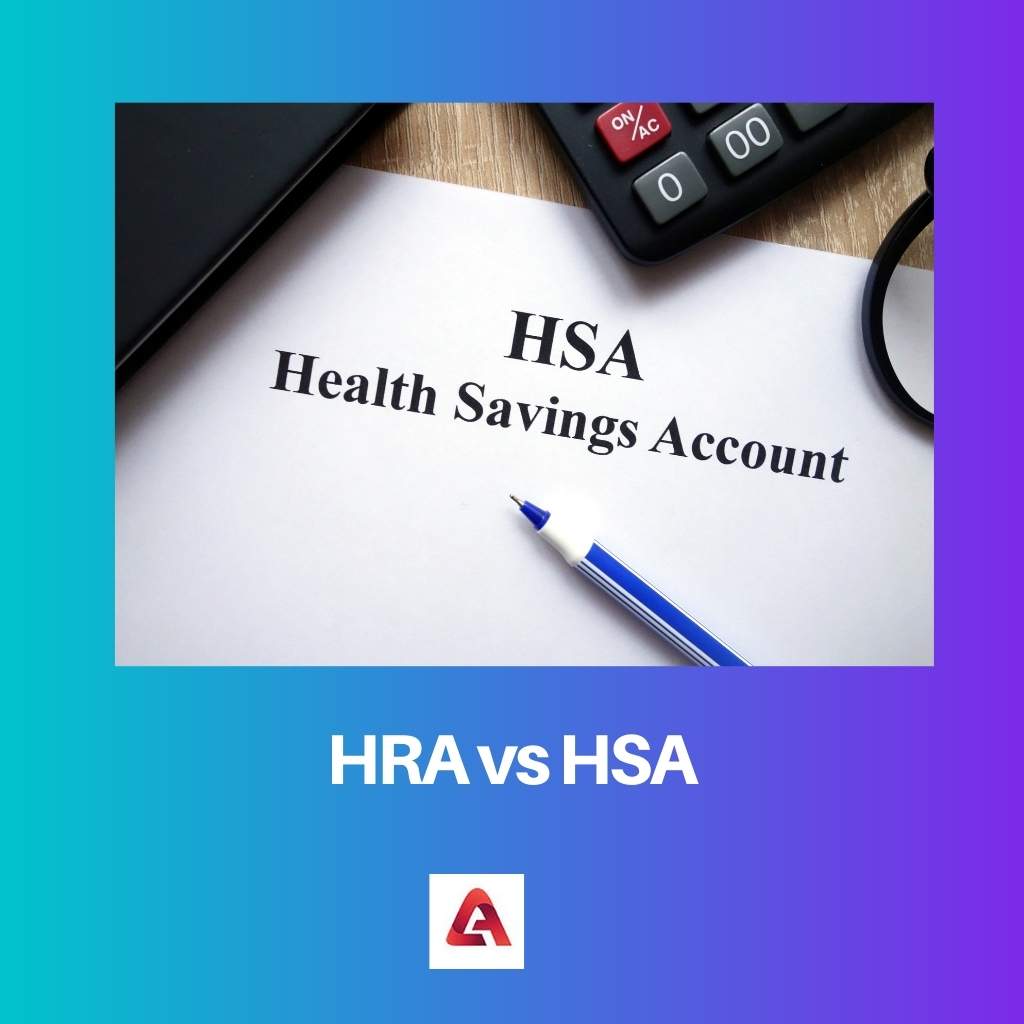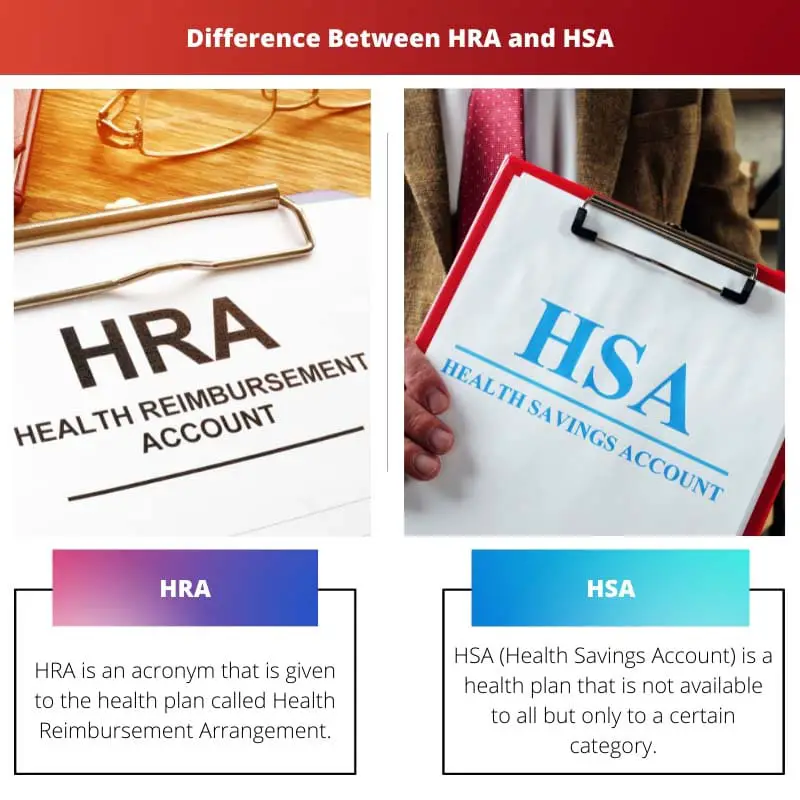To ensure that we have a safe and sound future, we also have to make arrangements at present that are crucial. One such arrangement is insurance- it can make our lives considerably easier when the time comes.
Key Takeaways
- HRA, or Health Reimbursement Arrangement, is an employer-funded account to reimburse employees for medical expenses. At the same time, HSA or Health Savings Account is a personal savings account used to pay for medical expenses.
- The employer owns HRA funds and can only be used for eligible expenses, while the individual owns HSA funds and can be used for any qualified medical expense.
- HRA does not require a high-deductible health plan, while HSA requires a high-deductible one.
HRA vs HSA
HRA stands for Health Reimbursement Arrangement and is a type of health plan in which the person is an employee while the employer contributes to the account. HSA means Health Savings Account, and only those who are enrolled in a High Deductible Health Plan are eligible to open one.

It is an insurance scheme wherein one’s employer deposits a certain amount, but that amount is forfeited by the employer once you quit your job.
The person availing it should have a high-deductible health plan. Certain caps are set on the amount of contribution that can be made by the individual.
Comparison Table
| Parameters of Comparison | HRA | HSA |
|---|---|---|
| Full forms | Health Reimbursement Arrangement | Health Savings Account |
| Eligibility | One should be the employee in an employer-employee relationship | One should be enrolled in the High-Deductible Health Plan |
| Ownership and Control | The employer contributes to the account; therefore, he has ownership of the account. | The one availing the health-benefit plan has ownership and control of the account. |
| Sponsor | In this case, the employer contributes to the account on behalf of his employee. | In this case, the employee himself affords the plan |
| Tax benefits | Not very high | Low premium rate and has higher tax-deductibles |
What is HRA?
HRA is an acronym that is given to the health plan called Health Reimbursement Arrangement. This is based on an employer-employee relationship.
It is an insurance scheme wherein one’s employer deposits a certain amount, but that amount is forfeited by the employer once you quit your job.
It is exceedingly advantageous for the employee as it is the employer who will have to cover all the medical expenses. However, there is a specified limit to it.
In this case, the employer contributes to the account on behalf of his employee, thereby becoming his sponsor. As the employer owns the account, the employee cannot make any withdrawals from the account.
It is noteworthy that in this plan, the employers can change the amount of their contribution to the account under certain circumstances.

What is HSA?
HSA (Health Savings Account) is a health plan that is not available to all but only to a certain category. This is an individual account, and the owner has complete control over it.
Therefore, the eligibility criteria are that not only should the person be employed, but he should also have a high-deductible health plan, and only then will the person availing it be in a position to create an account and make regular contributions to it.
This is because not only are the expenses for a blood-sugar test, x-ray, or dental exam covered by it, but it also covers the expenses incurred in ambulance services.
Here, since the contributions are made by the employee himself, he has complete control over the account and is, therefore, the account owner.
To add a cherry to the cake, if the employee ends up losing his job and gets employed at a new place, he can still retain the account and continue to reap its benefits.

Main Differences Between HRA and HSA
- While the employer happens to be the owner and the controller of the account in the case of HRA, the person availing the plan himself is the owner and controller of the account in the case of HSA.
- The employee earns no interest in the account in HRA. However, in HSA, the account holder earns an interest.


The comparison between HRA and HSA was very informative. I appreciate the thoroughness of this article.
The article’s comprehensive comparison of HRA and HSA was greatly informative. Well done!
I’m impressed with the detailed explanation of the differences between HRA and HSA. This was a valuable read.
The article did an amazing job at explaining HRA and HSA. I’m impressed with the quality of the information.
I couldn’t agree more, Emily. The simple comparison table made it very clear.
Absolutely! The differentiation between the two was quite informative.
I found the explanation of HRA and HSA to be very enlightening. I now have a better understanding of health plans.
This article has prompted me to consider HRA and HSA seriously. It’s a vital topic to understand.
Indeed, Qmurphy. The detailed comparison was very compelling.
The details on the tax benefits of HSA are enlightening. This article was educational!
It’s quite advantageous how HSA offers more control compared to HRA. The article explained it very clearly.
Definitely, Caitlin. The clarity provided is exceptional.
Absolutely, the in-depth explanation was top-notch.